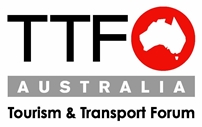
Report Highlights $1 Billion National Benefit in Franchised Bus Networks in Sydney, Brisbane and Canberra
The franchising of government-run bus services in Sydney, Brisbane, Canberra, Hobart and Newcastle could generate $1 billion over five years in savings that could be used to further improve public transport services according to a new report released by the Tourism & Transport Forum Australia (TTF).
The report, ‘On the Buses: The Benefits of Private Sector Involvement in the Delivery of Bus Services’, has been prepared by TTF and leading Australian and international consulting firm L.E.K. to assess the financial and service benefits to government and commuters of competitive contracting of bus routes to experienced private operators.
“The management of bus networks is an area of transport policy in which the private sector has proven again and again that it can deliver quality services at best value for taxpayers’ money – that is the benchmark by which we should be deciding on the best operator of our bus networks,” said Margy Osmond, TTF CEO.
“Franchising is a great model for state and territory governments to embrace for their bus networks – it keeps the infrastructure including the buses and depots in public hands but contracts out the operation of these assets to experienced private operators for the period of the contract.
“The experience in other Australian states and international jurisdictions is that franchising delivers better results to government and commuters.
“Our report shows that cost savings of over 20 per cent have been achieved around the world through franchising. In Australia, this could equate to an estimated $1 billion saving over five years that could be reinvested in better public transport services.
“This is in no way a radical policy change in Australia – Melbourne, Perth, Adelaide and Darwin have bus networks that are completely managed by private operators and not the government.”
“Sydney is halfway there with a hybrid system of private and publicly operated buses – our report makes the clear case that private operators should be given the chance to competitively bid for the four contracts being run by Sydney Buses.
“Our analysis indicates that there is the potential for up to half a billion dollars in savings over five years if Sydney Buses was run by a private operator.
“ACTION buses in Canberra are a strong candidate for competitive tendering and inclusion of the proposed light rail in the contract would make it very attractive to private operators in a similar model being embraced by the NSW Government in Newcastle.
“Bus franchising in Queensland makes a lot of sense at a time when the Government is facing a significant budget challenge. The national experience shows that franchising buses improves services and saves taxpayers money – a perfect combination for the Queensland budget.”
Monica Ryu, Transport and Infrastructure Partner at L.E.K., said that there are significant opportunities for further private sector involvement.
“The most critical element of the contracting regime is effective contestability. There needs to be open and fair competition for contracts every six to eight years, and sufficient interest from the private sector to ensure competitive tension in the process.
“Our report also highlighted opportunities to improve the competitive process in contracts already being managed by private operators by providing greater access to bus depots and supportive infrastructure to new entrants.
“The report argues the case for a competitive environment between private operators – multiple bidders for a local bus network provides better value for taxpayers.
“Ensuring access to existing infrastructure in the contract zone such as bus depots is a major stumbling block for a new entrant that is unlikely to have that infrastructure already in place.
“There are legacy issues that government will need to tackle in terms of negotiating access to privately-owned bus depots if a competitive environment is to be cultivated with new entrants.”
